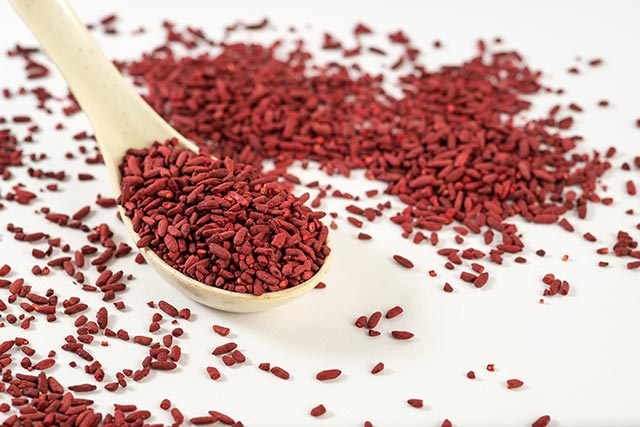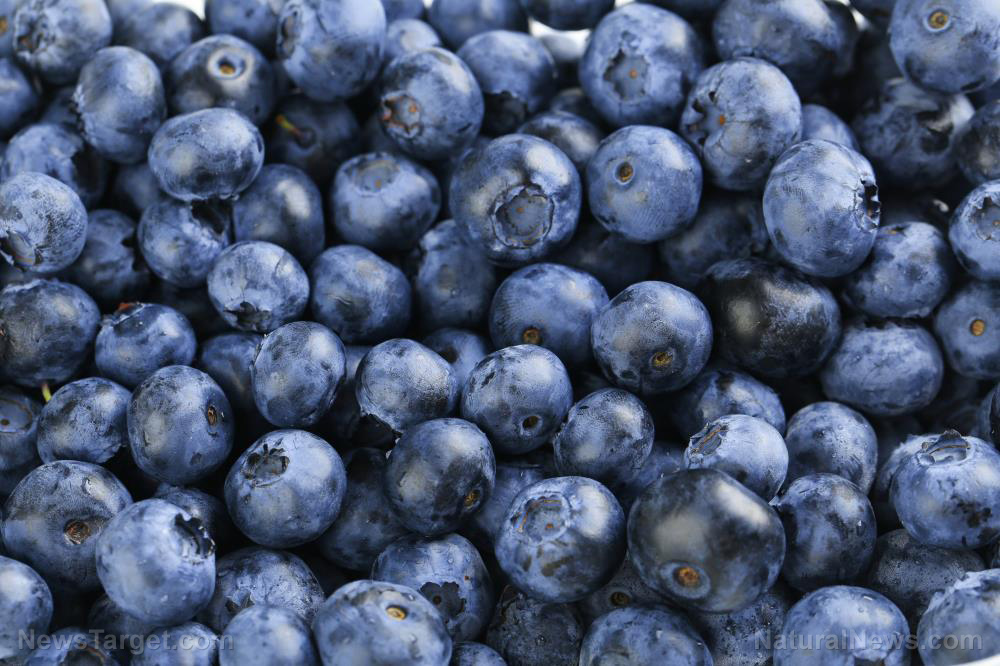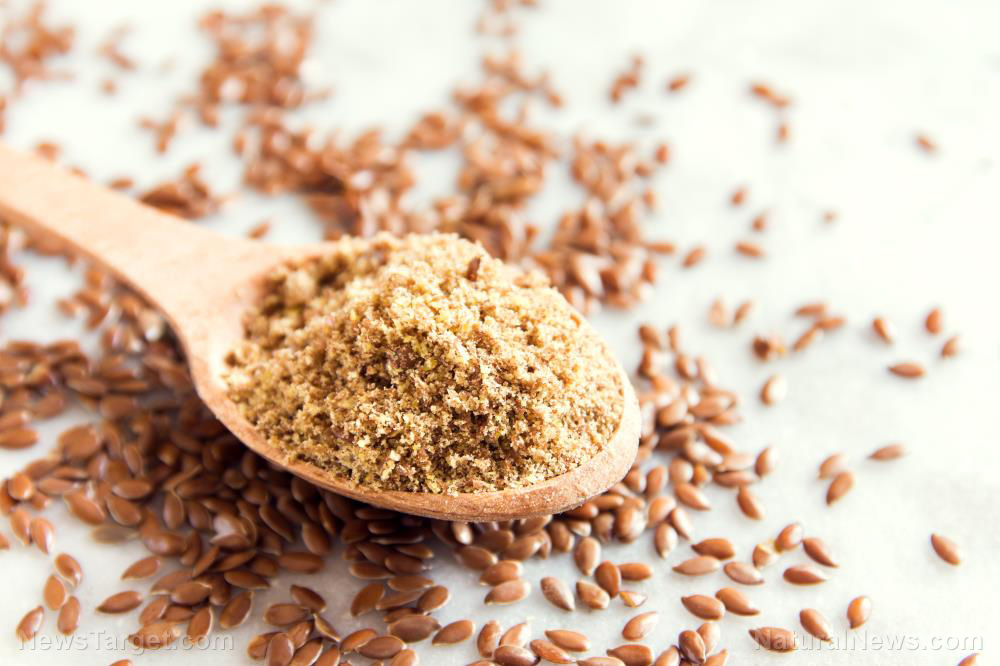Essential to your overall health and well-being, you can find vitamin A in these foods
06/30/2019 / By Zoey Sky

The human body needs vitamin A to maintain overall health. But since your body is unable to produce the vitamin on its own, you need to follow a nutritious diet full of vitamin A-rich foods to prevent deficiency.
Vitamin A: An essential nutrient that boosts eye health
Vitamin A offers the following benefits for certain bodily functions:
- Healthy vision – A diet full of vitamin A-rich foods can help prevent certain eye diseases, like age-related macular degeneration (AMD).
- Immune function – Vitamin A boosts immune function by keeping oxidative stress — which is linked to chronic diseases like cancer and diabetes — in check. It also helps trigger responses that protect the body from illnesses and infections.
- Reproduction and growth and development – Vitamin A is crucial for both male and female reproduction since it has a role in sperm and egg development. Additionally, the vitamin is needed for placental health, fetal tissue development and maintenance, and fetal growth.
- Skin health – Vitamin A deficiency is linked to conditions like hyperkeratosis and acne. (Related: Vitamin A is a powerful antioxidant that can slow down the process of aging.)
There are two main types of vitamin A:
- Preformed vitamin A, which comes in the form of retinol. This type of vitamin A is present in animal-based foods like fish, meat, poultry, and dairy products.
- Provitamin A, which comes in the form of carotenoids, mainly beta carotene. This type of vitamin A is present in plant-based foods, like fruits and vegetables.
For better absorption of vitamin A, you need to include some fat in your diet. Don’t overcook foods since this reduces their vitamin A content.
According to the Office of Dietary Supplements, the recommended dietary allowance for vitamin A is as follows:
- Males aged 14 years and older – 900 mcg
- Females aged 14 years and older – 700 mcg
- Pregnant teens aged 14 to 18 years old – 750 mcg
- Pregnant women aged 19 years and older – 770 mcg
- Breastfeeding teens aged 14 to 18 years – 1,200 mcg
- Breastfeeding women aged 19 years and older – 1,300 mcg
You won’t be able to convert mcg values into IU if you don’t know whether the food source contains preformed vitamin A or provitamin A. To determine the daily value (DV) of vitamin A that a serving contains, you need to know the IU and the type of vitamin A present in your food.
The recommended DV for vitamin A is 5,000 IU for adults and children aged four years and older. Take note that one IU equals 0.3 mcg for preformed vitamin A and 0.05 mcg for beta carotene from food.
The foods in the list below contain at least 15 percent of the DV in a standard serving.
Beef liver
Beef liver is one of the best sources of preformed vitamin A. Like humans, animals store vitamin A in their livers.
A three-ounce (oz) serving of pan-fried beef liver contains 6,582 mcg of vitamin A or a whopping 444 percent of the DV.
Liver is an organ meat that’s also full of protein and other nutrients, like choline, copper, folate, iron, and vitamins B2 and B12.
Broccoli
Half a cup of broccoli provides 60 mcg of vitamin A or 24 percent of the recommended DV. In addition, one serving of broccoli has only 27 calories. It is also a great source of vitamins C and K.
Vitamin C boosts your immunity and has antioxidant and anti-inflammatory properties. Vitamin K is crucial for bone metabolism and blood clotting.
Carrots
Carrots are full of beta carotene. Half a cup of raw carrots has 459 mcg of vitamin A or 184 percent of the DV. A portion of carrots contains only 26 calories, so snack on carrot sticks if you want to lose weight.
Carrots are also rich in dietary fiber that can help prevent constipation and boost your gut health.
Cod liver oil
Fish livers are rich in preformed vitamin A. A tablespoon of cod liver oil contains 4,080 mcg or 272 percent of the DV. Fish oils are some of the richest sources of omega-3 fatty acids.
Omega-3 fatty acids can help prevent inflammation, boost heart health, and address depression. Cod liver oil also contains vitamin D. A tablespoon of cod liver oil has 340 percent of the DV.
Spinach
Spinach and other leafy green vegetables are full of nutrients. Half a cup of boiled spinach contains 573 mcg of vitamin A or 229 percent of the DV, 17 percent of the DV for iron, and 20 percent of the DV for magnesium.
Sweet potato
A whole sweet potato baked in its skin has 1,403 mcg of vitamin A or 561 percent of the DV.
Sweet potatoes contain vitamin A in the form of beta carotene, which helps prevent colon and prostate cancer. They are also fat-free and low in calories. Sweet potatoes contain potassium and vitamins B6 and C.
Because they are rich in fiber and have a low glycemic index, sweet potatoes can be used to manage blood sugar levels.
Follow a balanced diet that contains vitamin-A rich foods to boost your eye health, immunity, and overall well-being.
Sources include:
Tagged Under: #nutrition, anti-inflammatory, antioxidant, beef liver, beta carotene, broccoli, carotenoids, carrots, clean food, Cod liver oil, diet, dietary fiber, disease prevention, eye health, fetal development, fetal growth, food cures, food is medicine, fresh vegetables, functional food, functional foods, healthy fats, immune function, immune system, natural cures, nutrients, omega-3 fatty acids, preformed vitamin A, prevention, proper nutrition, provitamin A, reproduction, retinol, skin health, spinach, sweet potato, vegetables, vitamin A, vitamin A deficiency, vitamin A-rich foods, Vitamin B, vitamin C, vitamin deficiency, Vitamin K, vitamins, vitamins and minerals
RECENT NEWS & ARTICLES
FoodIsMedicine.com is a fact-based public education website published by Food Is Medicine Features, LLC.
All content copyright © 2018 by Food Is Medicine Features, LLC.
Contact Us with Tips or Corrections
All trademarks, registered trademarks and servicemarks mentioned on this site are the property of their respective owners.



















